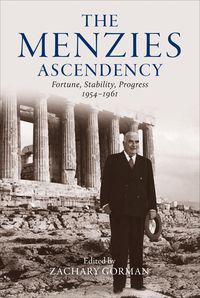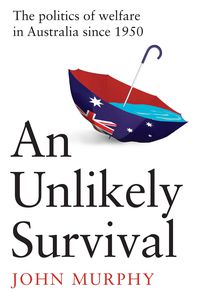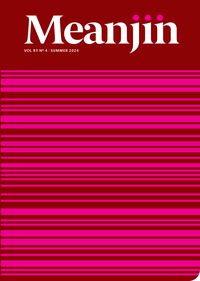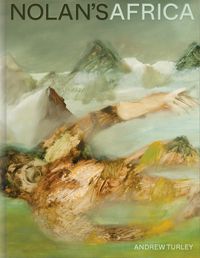←Back to My family and other animus
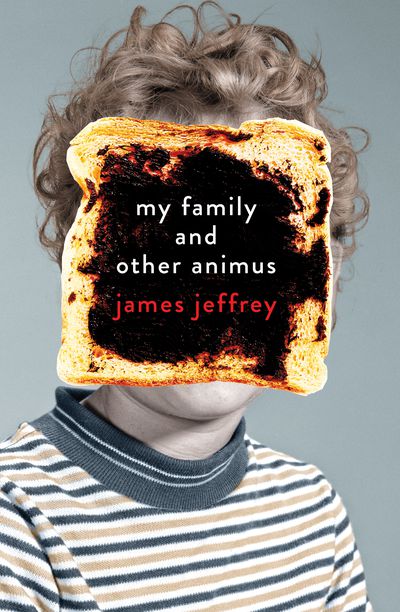
An extract from “My family and other animus”
Friendship's Twilight
THERE ARE PLENTY OF fun meditations on the business of putting words on a page. ‘Writing is easy,’ said Douglas Adams. ‘You only need to stare at a blank piece of paper until your forehead bleeds.’ Which was itself a riff on Ernest Hemingway. Oscar Wilde had his famous comma, which he spent all morning taking out, then following a period of careful reflection, spent the afternoon putting back in. Nikolai Gogol used to hit up his mate Alexander Pushkin for ideas before he got rolling. Virginia Woolf, for her part, compared it with sex: ‘First you do it for love, then you do it for your friends, and then you do it for money.’ But for mine, one of the most sensible tips was from Kurt Vonnegut: ‘Write to please just one person. If you open a window and make love to the world, so to speak, your story will get pneumonia.’
One of humanity’s oldest and most incontrovertible laws is that there’s no pleasing everyone. Should anyone ever need reminding, the comments sections under online stories are doing a sterling job. So I listened to Vonnegut.
For me, that one person was Mark Colvin—journalist, broad- caster, writer, Twitter fiend, outstanding human being and, in a twist of fate I still pinch myself over, dear friend. I never told him he was my target audience, though I suspect he figured it out, judging by the regularity with which I brought words to him for blessing.
Sometimes he issued a judgment on the entire piece, sometimes he’d single out a line or two that had stood out for him. He might gently suggest the removal of an errant comma, though unlike Wilde he was never in the business of putting it back in. Then once in a while, he caught me completely off guard. After the last of my Home Truths columns was published (included here as the next chapter), he dropped me a line late that evening that stopped me in my tracks: ‘I hope Bel is suitably appreciative of what between the lines is one of the great love-letters of all time.’
That was one of the things about Mark—he missed nothing. Our friendship was only a few years old, but it had been a rapid and thor- ough interlocking, one of those connections that felt a whole lot older than it was. As a mutual friend said to me when it was all over, ‘It was like speed-dating with you two’.
The end started innocuously with a short text from him on 21 March 2017: ‘Guess where I am? Hint: crap food and beeping noises.’ I wish I’d had the presence of mind to reply, ‘Are you at a rave, Mark?’
But I didn’t. I was too appalled that his bad luck—a malignantly, indefatigably attentive force—was refusing to take a break. Hospital stays were such a part of Mark’s life over the couple of decades he’d spent as a walking, talking medical curiosity. For God’s sake, he’d only just come out of a tussle with a cancer that had set up camp on that generously proportioned head of his. That he was already being sucked back in to the hospital system just felt like bad luck being lifted one notch higher into the perverse.
But one of the many lessons Mark taught by example was the importance of taking things in one’s stride. I saw him falter only once, and that was the afternoon he spelled out the hard reality of his diagnosis. I never imagined the time would come when I found myself wishing a friend had pleurisy—one of the initial but wrong guesses as to what was troubling his lungs—but here we were. His days in hospital stretched into weeks, and the secret of how drastically bad things were for Mark was hermetically sealed inside a group of friends I thought of as the Circle of Colvin.
Yet there was hope, and radiation. One time I popped by at the appointed time but found his bed empty. He texted an apology, explaining that his radiation session had hit some complication and he was running late. He sent this text from inside the radiation room. The next time we spoke, I suggested to him that it might be a good idea if he never apologised to me again.
One of the times Bel and I visited, I brought news of Mum’s Gumtree real-estate success. Mark brightened. ‘I love stories about James’s Mum,’ he told Bel, a look of impish glee on his face. And he totally did. Even a throwaway line could delight him.
At the start of the year, we’d fallen briefly into a texted conversa- tion about my father and the miracle of how of all Mum’s marriages, theirs had been the longest.
‘In which order did she marry them?’ Mark asked. ‘Was he her first?’
‘Dad was second,’ I replied. ‘No. 1 and No. 3 were Magyars—lack of language barrier probably made everything more efficient.’
‘Efficiency. Your mum. Not concepts I’d previously paired in my mind.’
‘You should see her smoking.’
‘HAHAHAHA 2017 is already better than 2016.’
It was one of the rare occasions Mark jumped the gun. On 11 May, less than two months after the text about crap food and beeping noises, he died.
I was far away, working in Parliament House. I’d known for two days that things had turned south on him, but I thought there was still time left and had made plans to visit him the following day. A phone call from our mutual friend Leigh Sales put an end to that. Inasmuch as I can pull a positive out of that moment, it was that I was with a friend (and occasional musical partner), Labor MP Terri Butler. Terri whisked me straight out of there—a relatively public part of the building—and hid me in her office, where she proceeded to pour a morning martini into me while I went wild with grief.
When I finally emerged, I was lucky to pour myself into writing something about—and for—my friend. This:
I must have walked a million miles in my local Bunnings—because of Mark Colvin. It’s like he could sense when I was in there and therefore free to chat. It tended to be in the doldrums of a Sunday afternoon and my phone would buzz in my pocket—something important or trivial or amusing or splendidly random had crossed his mind, and he had to share it. ‘Hello mate,’ he’d say, and we’d be off. I’d give up any pretence of looking for what I’d come for and would meander up and down the aisles, trolley in one hand, phone in the other. And it was glorious. Sometimes it was serious, sometimes not, sometimes both. I’d always pick up new knowledge and, as if to keep things in balance, lose a bit of hearing as his laugh boomed in my ear. Our conversation sometimes wandered the world or history, sometimes stayed very local. Sometimes we dug deep, sometimes skated happily across the surface. Then eventually, we’d say goodbye—and suddenly I’d realise I was still in Bunnings.
I first met Mark briefly at some event, but it was on Twitter—that corner of the internet that feels like it was designed with him in mind—that our paths truly began to cross. I was in awe of him, so I was beside myself when he took a shine to my writing.
We met at a cafe around the corner from his house and we never looked back. A love of words brought us together, but there was so much we revelled in: Eastern Europe, Iran, comedy, music, good writing and, with almost equal enthusiasm, bad writing. (Just last weekend he was eager to alert me to the latest output of one scribe who regularly baffled us into a state of hysterical disbelief. His text contained just one word: the writer’s surname.) Many were on the receiving end of Mark’s magic, and Twitter expanded his reach. He was so generous—not least with young journalists—and he’d sweep up everyone in his enthusiasm, his wisdom, his great tidal waves of encouragement.
Sometimes I loved just listening to him. I mean, that voice. One of the joys of life was hearing that velvet instrument used to produce swear words—something he did with joyful abandon and creativity in the right company. And he was always keen to improve himself even in this area. I have a small collection of Mark’s messages to me that begin, ‘As a connoisseur of invective I thought you’d enjoy …’ But sometimes they’d arrive in my inbox unannounced—for example, an article celebrating words such as ‘arsegiblets’ and ‘mingebulb’. I’d send stuff back and we’d fall into a cycle of escalation.
Eventually he might ring, roaring with laughter. Sometimes, he was just keen to create a mental image. Once he noted with pleasure he’d seen a particular person smiling—‘First time I’ve seen her not look like someone had recently shoved a cheesegrater up her arse’. Mark may have been a man of profound depths, but boy was he gleeful splashing through the shallows. Then, just after another round of silliness, he’d turn around and give you what felt like half the universe. When he asked me to read some chapters of the manuscript that became his memoir Light and Shadow, I lost myself in a bigger world. His.
He was brave, he was stoic. Injustice and hypocrisy made him angry. A bowl of fresh raspberries sorted him out. As did his special place in the water. Last Christmas he texted from his mother’s place in the country: ‘Here the dam is full and I swim around the island in the evening. Bucolic peace.’
Mark loved my family, and even extended that affection to our pets. He was very much a dog person (I keep thinking about his boxer, Chops, waiting for the boss to come home), but he got his hands on one of my pythons and looked like a happy little boy.
He was one of the finest people I’ve ever known, and becoming his friend has been one of the great joys of my life.
He left one last tweet to be sent out once he was gone: ‘It’s all been bloody marvellous.’
But for now, I’m clinging to the last message he sent me. It was on Wednesday and I promised to come see him the moment I got back to Sydney. He replied with the simplest expression of love: ‘XXXX’.
Those words appeared in the paper the following day. It was Friday, the first day without Mark in the world, the day I’d been meant to go back and talk with him about big things, little things and utter bol- locks. Instead, Bel and I gathered with others from the Circle of Colvin in a pub near his house. His photo was parked on the table with its own gin and tonic, which bubbled away miraculously for hours. We laughed and cried and read aloud choice quotes from that column- ist, whose latest output had—as if by miracle—dropped a day early. During a couple of the more egregious paragraphs, I turned Mark’s face away. That little informal wake helped us all. But as I wobbled out into the night afterwards, I wondered: who’d be my reader now?
Mark was keen on Vonnegut’s wisdom. Some of it was shared as a reading at his funeral. As we all sat there, still thunderstruck, eyes locked on the wicker coffin that was the final expression of his desire not to cause a fuss, the sadness was softened for a moment by one of Vonnegut’s great conclusions: ‘I tell you, we are here on Earth to fart around, and don’t let anyone tell you different.
This is an extract from my family and other animus, by James Jeffrey.
